“The moment that changed my life”, an heartfelt testimonial from Agnies
At the age of 11, Agnies became a working student. After school, she cleaned the house in exchange for accommodation. Today, she is a […]
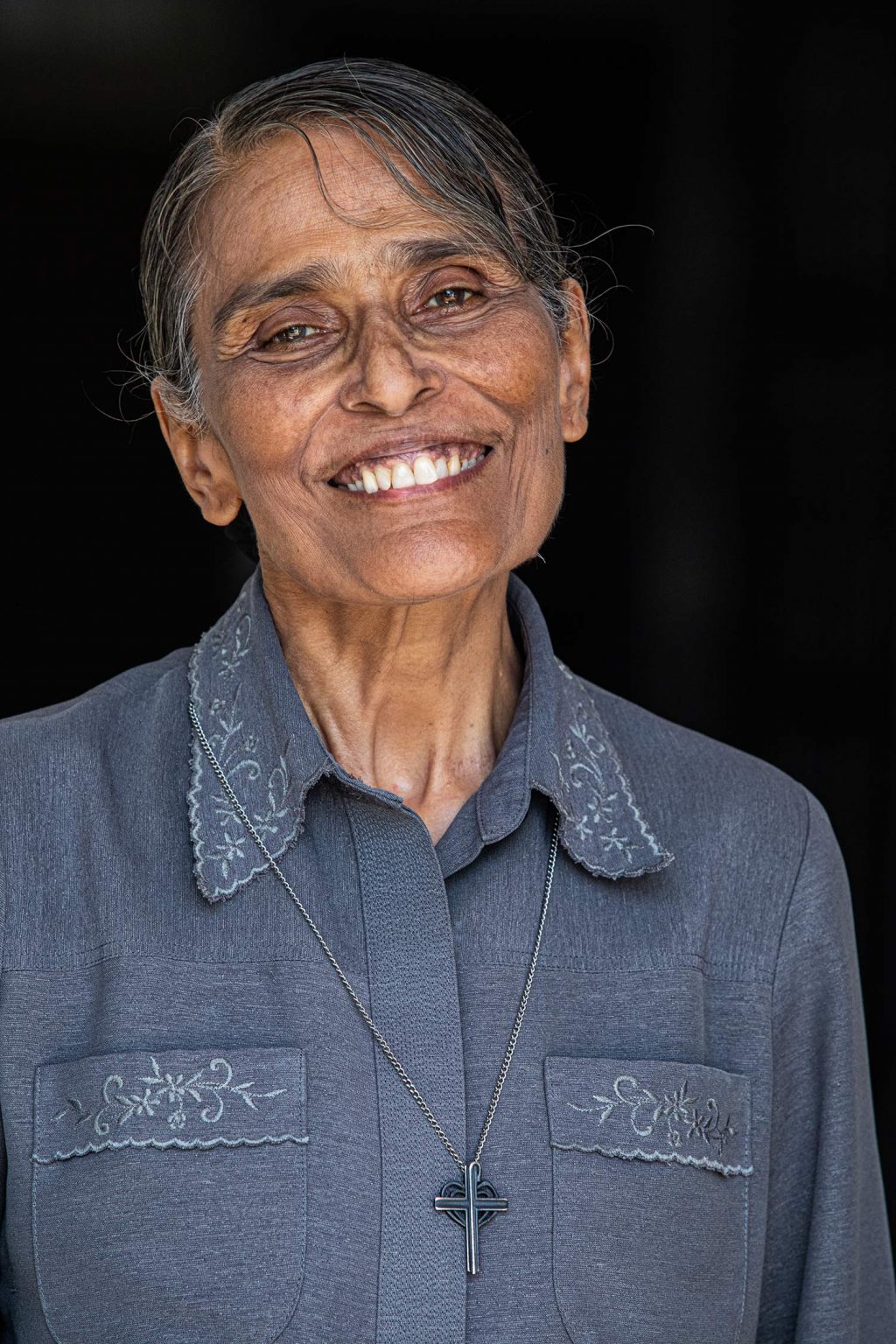
Sister Michelle fights for the women and children of Sihanoukville
A piece of Upbeat music resonates through an old factory transformed into a creative coworking space. At the heart of a neighbourhood not far from Phnom Penh, The Factory is a place where Cambodia is reinventing itself. They are shedding their third world skin and becoming modern, new and eccentric. Here, the walls are decorated by famous street artists and young entrepreneurs discussing everything from future technologies and next season’s fashion. And that night, fashion was the guest of honour. Under the high vaulted ceilings, electro music accompanies a high-end fashion show. In the midst of all these creators and Khmer celebrities, there sits a child from the rice fields, perfectly in her element.
Kongka Chan grew up far away from the city, in a rural province, one of the poorest ones in Cambodia: Banteay Meanchey. Born in the village of Preas net preas, Kongka is 28 years old but she was only 13 years old when she and her four sisters were suddenly abandoned by their parents to escape from creditors. « My parents hadn’t received any education. They were unable to manage their finances and couldn’t pay back their debts. They preferred to leave Cambodia so that they couldn’t be located and found work in Thailand. »
The girls didn’t know where their parents were and had to manage alone. Still to this day, Kongka’s face darkens when she speaks of the fear she felt at that time. She is the second eldest and lived in fear of the moment when the men from the area discovered that five young minors were living alone, with no protection, in a house without windows or doors.
« In Cambodia, there are many stories of young girls being abused » Her eyes teared up speaking of it « I was terrified. It was my worst nightmare, you know? »
Half of Cambodia’s population is made up of youth less than 18 years old. They lost 90% of their intellectuals during the genocide carried out by the red Khmers that ruled Cambodia from 1975 to 1979.
Over the past 40 years, they have been struggling to rebuild themselves and must face many challenges such as the transmission of moral values and knowledge. « The trauma of this genocide has impeded the development of the country and transmission of moral values. » explains Martin Maindiaux, the head of Children of the Mekong Cambodia, « Today the situation is aggravated with the presence of the internet and the easy access to pornographic content on mobile phones. ».
It’s almost always women and children who suffer first from this loss of bearings, as demonstrated by Kongka’s past. Combined with a lack of education and endemic poverty in certain rural regions there are lasting repercussions.
This is the conclusion reached by the Cambodian Women’s Development Agency (CWDA), they have created a program aiming to prioritize girl’s education in the country to fight against human trafficking.
« The trauma of this genocide has impeded the development of the country and transmission of moral values. »
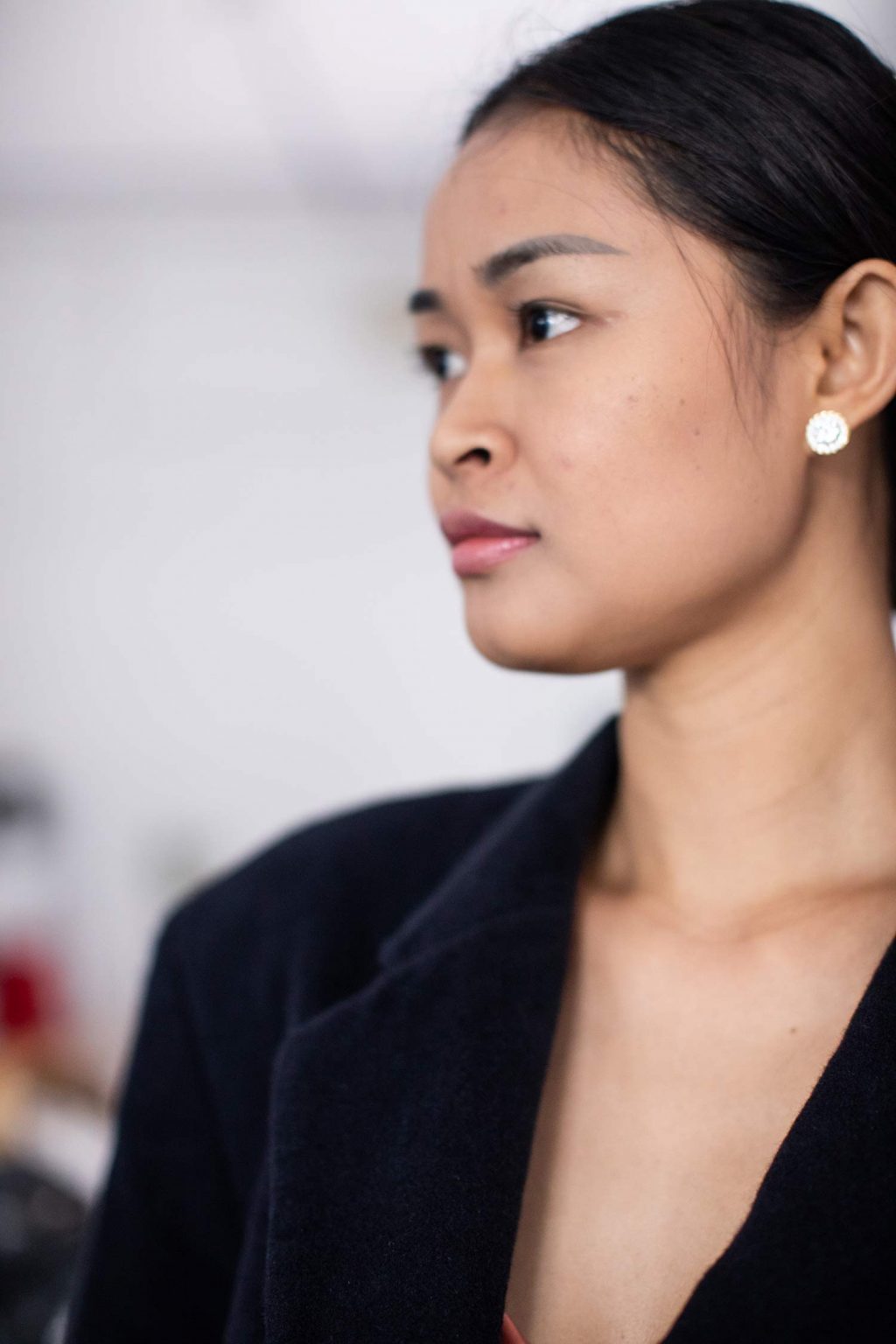
Kongka, who used to be sponsored through Children of the Mekong was abandoned by her parents at the age of 13, along with her four sisters
« Illiterate and poor Cambodian women are far more likely to resort to prostitution to earn money which makes exposes them to the risk of sexual slavery. According to estimations there are over 15 000 prostitutes in Phnom Penh, and over 65% are victims of sex trafficking and abuse. » explains the CWDA.
Such government initiatives combined with the actions of numerous organisations in Cambodia have considerably improved the situation and especially the education system in the last two decades. The current Cambodian Constitution guarantees the universal right to basic education, including nine years of mandatory free education. The state has also modified and adopted the Millenium Development Goals as well as the objectives of the Convention on the Elimination of all Forms of Discrimination Against Women (CEDAW), which guarantees access to education for all. « Today, any girl that signs up for university automatically benefits of 50% off on the cost of her studies, including private universities. Student housing is also being put into place by the government near schools,» mentions Martin Maindiaux.
According to the World Banks, the literacy rate of women over 15 years old has gone from less than 57% in 1998 to 75% in 2015.
A document by the United Nations explains that: ” International studies from organisations such as UNESCO have demonstrated the positive impact of female literacy on a country’s development. The more women are educated, the healthier their children will be. A child whose mother knows how to read has a 50% more chance of surviving beyond the age of five and, according to statistics, for every additional year that a mother spends in school, the infant mortality rate reduces by 5 to 10%. The document adds that education also improves job prospects for both men and women, and educating the female population in particular boosts a country’s productivity and stimulates economic growth. Some countries note a shortfall of more than 1 billion dollars per year directly linked to the lower level of education of girls compared to boys”.
In the south of Cambodia, is a city in the midst of change, another woman is fighting against the vulnerability of women and children in the country. “Does it bother you if we sit on the floor?” asks Michelle, smiling as she points to the tiled floor. Leaving the chair intended for her, the nun settles down at the child’s level. It is in the heart of the worst areas of Sihanoukville that she has chosen to set up her Fountain of Life centre, “close to those who are thirsty”. The city in the south of Cambodia is undergoing vast development for tourism to the benefit of many Chinese investors. The number of casinos is multiplying and with them comes trafficking and prostitution which bring their own share of violence. At the end of the street, women sell their charm and children are left to their own devices. “The people we live with are like plants that die: all of a sudden they come into contact with water, in other words, love, and come back to life”, explains the nun gently, whose features are drawn with fatigue. With her team of teachers, Sister Michelle welcomes children from the area, thus responding to the first appeal of her congregation, the Sisters of the Good Shepherd. “Around fifteen children aged 3 to 6 come to us to avoid being dragged around the streets and becoming victims of abuse.” At the centre, they are fed and learn the basics of Khmer, English and Chinese. In the evening, the older children come and join them for extra lessons and at the weekends, the nuns and teachers organise awareness campaigns for families about trafficking and abuse. “I see a real evolution in the country. The media has started to air awareness programmes and I think more and more Cambodians are conscious of what is appropriate behaviour. But education remains the most important thing because it reduces violence, including violence against women.”
Education remains the most important thing because it reduces violence, including violence against women.
Women are the big thing in Sister Michelle’s life! In Bangkok, Thailand, she discovered the misery of sexual tourism in Pattaya City. She opened her first centre there in 1988 and shared the lives of the women there without judging them, but supporting them. She visited them in prison and offered training to help them become more independent. “Education is the key to freedom”, she explained. Sister Michelle used the same method in 2006 in Sihanoukville.
Housed in the Sisophon centre with her older sister, Kongka Chan was able to continue to go to school. She was bright but chose to study a professional training course in hospitality rather than go to university because, by working, she could help her family sooner. In 2015 Kongka took part in the reality television show “Cambodia’s next top model” and won!
She became one of the most beautiful women in Cambodia overnight. She now walks the catwalk, hosts television shows and can pay off her parents’ debts, keep her sisters safe and offer them a new house.
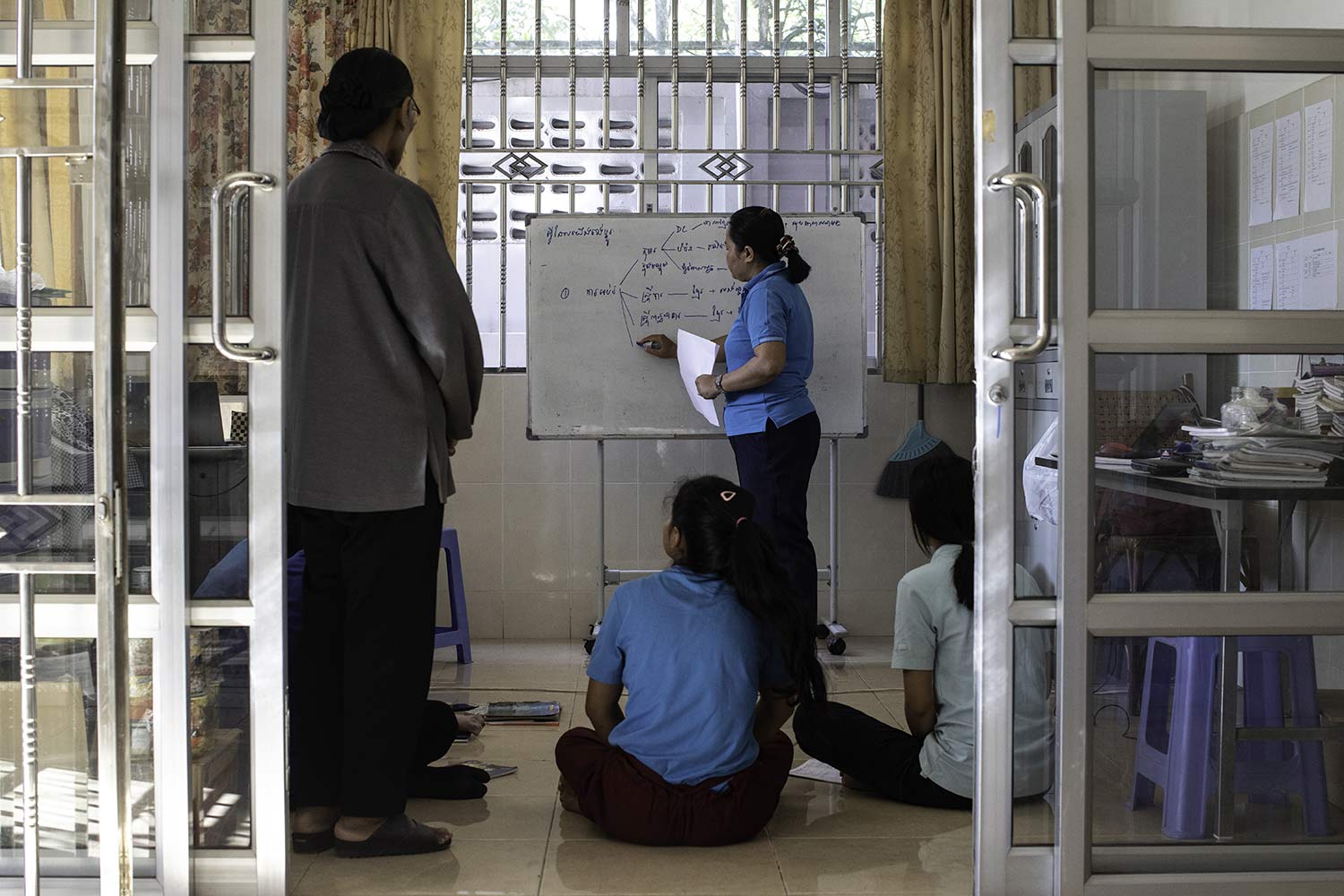
Training workers at the “Fountain of Life” centre for campaigns about the prevention of violence against women ©Antoine Besson
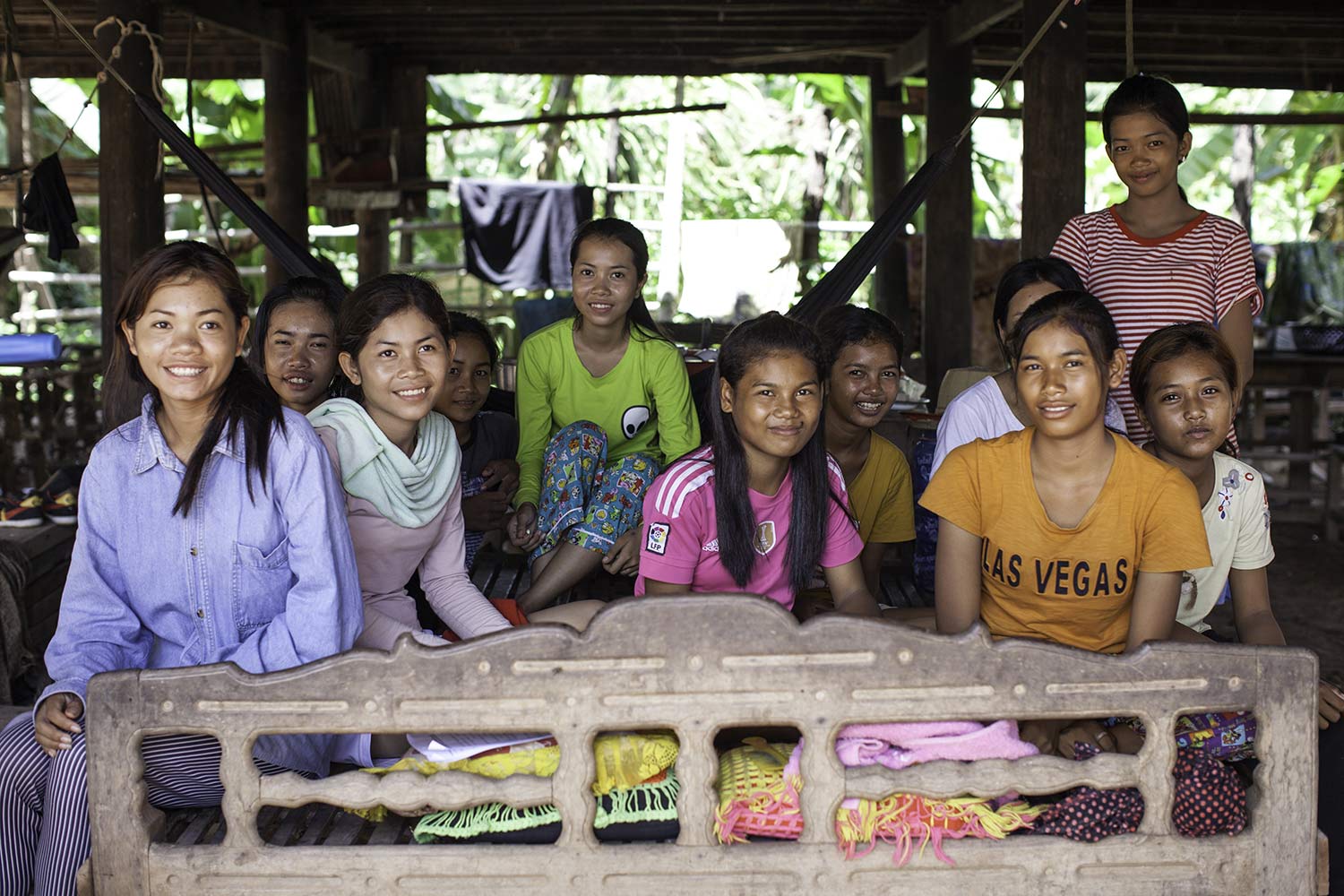
Boarding schools are set up near schools for young girls by the government ©Antoine Besson
Today, Kongka remains headstrong and thinks comfortably about the future. The majority of victims of abuse are poor and illiterate women, but once educated, these women bring solutions. Just like this young woman, who is planning to go back to her studies in fashion design and to launch a clothing brand which would provide jobs for women living on their own in the slums “so that these women never have to do what my parents did to us.”
When Kongka looks back on her past she explains that, on the day she joined Children of the Mekong, she felt like she belonged to a family for the first time. Letters from her sponsors gave her a new drive. She understood that she was not alone. Her determination, along with the sponsorship she received, saved her life because, as she still says today, “only education can save girls in Cambodia.”
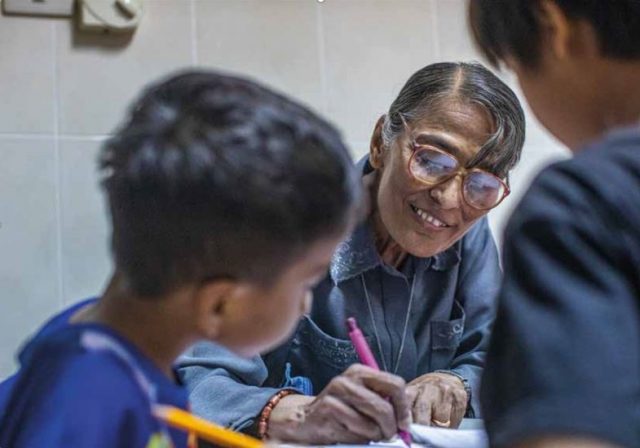
At her “Fountain of Life” centre, Sister Michelle educates and protects children and leads prevention campaigns against human trafficking ©Antoine Besson
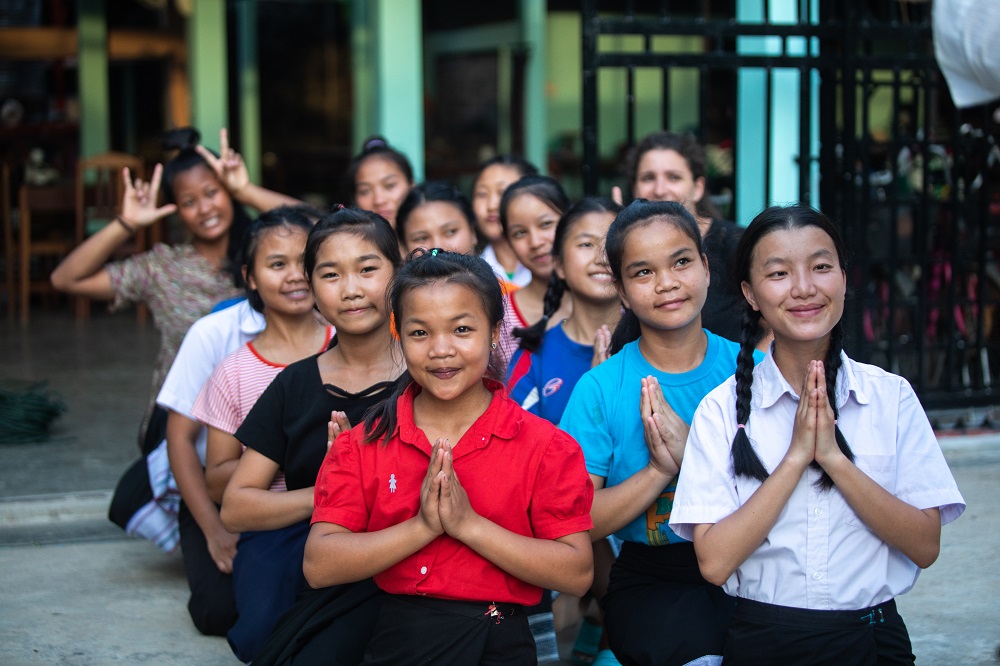
Would you like to sponsor a girl so that she can go to school? If the answer is YES, then join us and discover […]
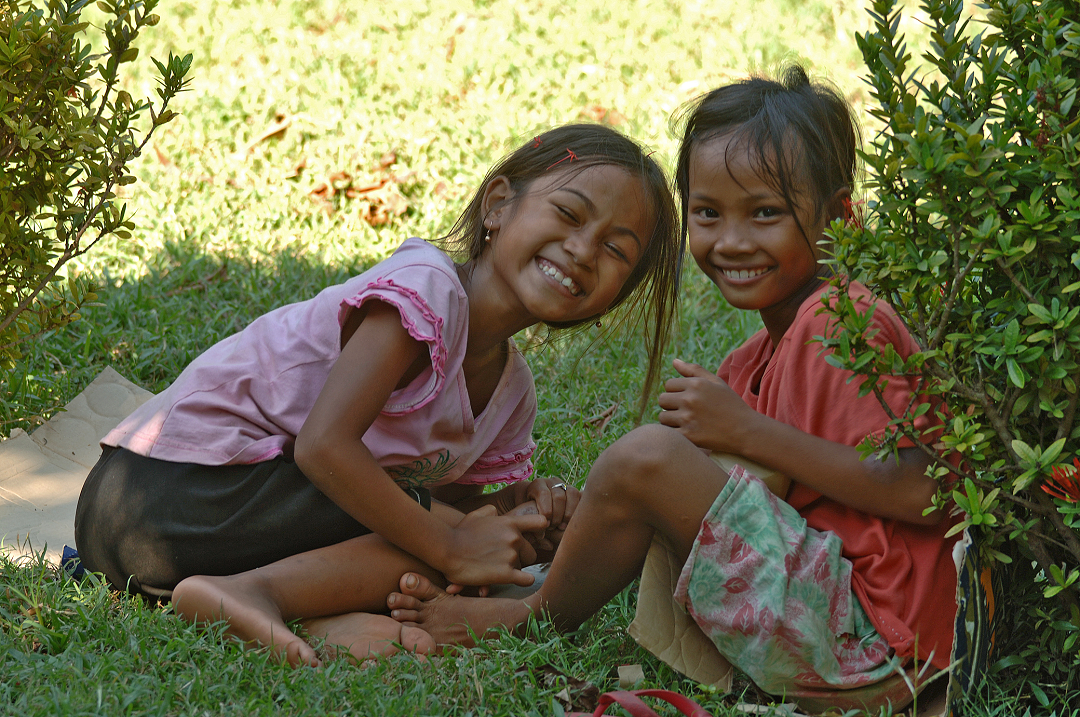
You might be prepared to sponsor a child, and looking around for how to complete the process. This article will help you break down […]